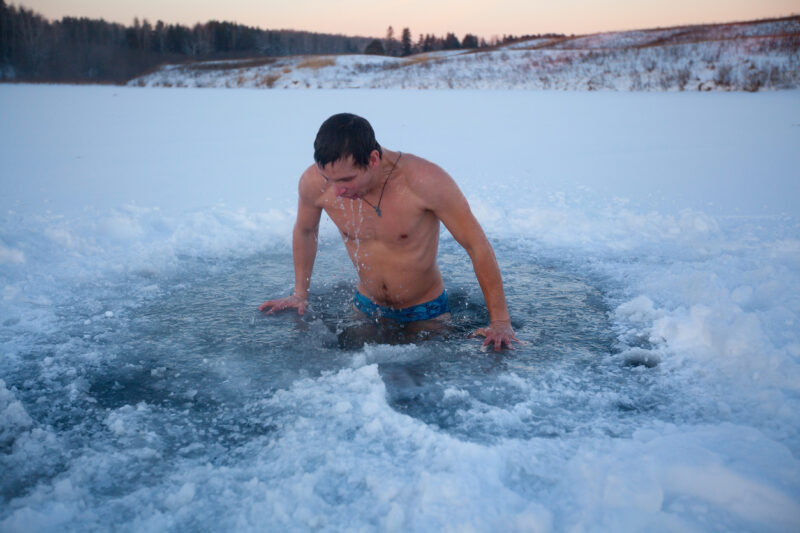What is cold water therapy?
Cryotherapy, the use of cold in therapeutic processes to treat illnesses and other maladies, has been around for centuries. Cold water therapy, which falls under the cryotherapy umbrella, dates back to ancient Greek and Roman physicians who used cold water therapy as a way to treat fevers and other medical issues, and to relax and socialize.
In more recent times, the studies and experiments with cold water therapy done by Wim Hof have had a major impact on the popularity of and interest in cold water therapy. Hof, after studying the effects of cold water therapy, has achieved many remarkable feats like standing in a container filled with ice for a prolonged period of time and swimming in cold water under a sheet of ice. Hof did not complete these activities as stunts, but as a way to draw attention to the positive effects of cold water therapy and to showcase what cold water therapy has done for him.
Today, many physical therapists, chiropractors, personal trainers, and other healthcare professionals use cold water therapy as a way to relieve pain, potentially speed up muscle recovery, and much more.
How Cold Water Therapy Works (Scientifically)
Cold water causes the blood vessels in your body to constrict, so there is less blood flow to the area that is immersed in the water. Less blood flow to the affected area means less swelling and less pain. Less swelling and less pain mean muscles recover faster. But, there is a lot more that cold water therapy can improve.
While cold water therapy can initially reduce blood flow, over time it can actually help increase circulation. Cold water therapy causes your body to release norepinephrine, a hormone that helps to increase blood flow and oxygenation to the body’s tissues. The cold water also encourages your heart to pump more efficiently, which improves circulation to your entire body.
Cold water therapy has also been shown to increase your white blood cells, which are important for fighting off infections and illnesses. This boost in white blood cell count can positively affect the immune system and reduce your chances of getting sick.
Another positive effect of cold water therapy on the body is that when you are immersed in cold water, your body releases endorphins, which are the body’s natural painkillers and mood enhancers. The release of these endorphins causes your body and mind to relax and be calm. Regular exposure to cold water therapy may help to reduce symptoms of depression and anxiety.
One more possible added benefit of cold water therapy is increased metabolism. When practiced consistently, cold water therapy can boost your metabolism by forcing your body to work harder to keep you warm – burning calories in the process. Moreover, researchers have found that exposure to cold benefits weight loss by promoting healthy brown fat, which is the good fat our bodies generate to keep us warm.
Lastly, cold water therapy affects the hormone melatonin, which regulates sleep. Melatonin is particularly important for maintaining a healthy sleep-wake cycle, and regular exposure to cold water therapy can therefore help improve sleep quality and may help reduce the risk of sleep disorders such as insomnia.
Give Cold Water Therapy a Try
Cold water therapy has many benefits, but just like any new addition to your health and wellness routine, you should approach the process with a few things in mind. Begin your cold water therapy gradually. Let your body get used to the water by at first only spending 1-2 minutes immersed, then gently increasing the time you spend in the water.
Scientific evidence supports the benefits of cold water therapy; improved circulation, reduced inflammation, a boosted immune system, improved mental health, and better sleep quality are a few benefits of this ancient practice.
Questions about cold water therapy? Reach out to 10X Health today.
